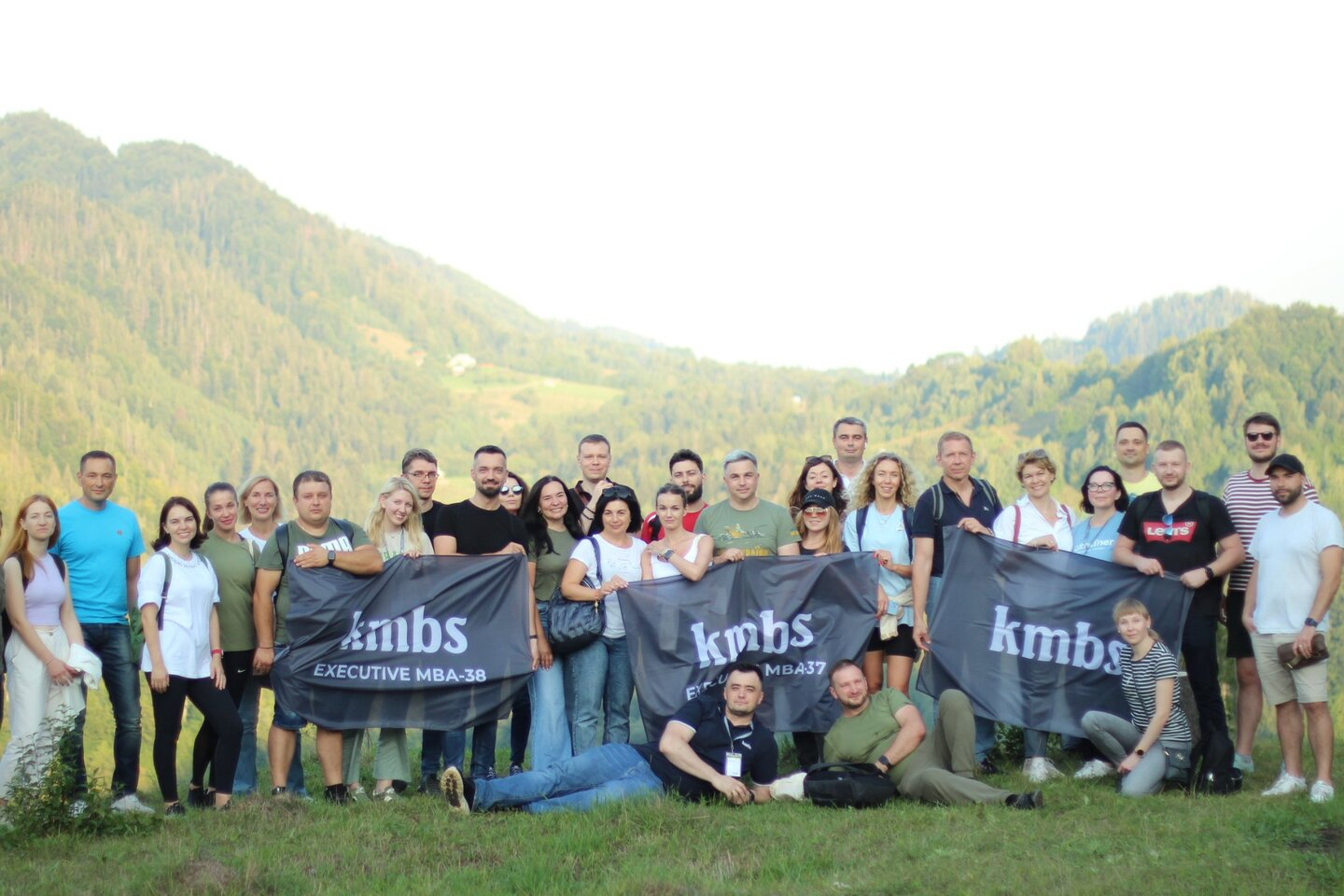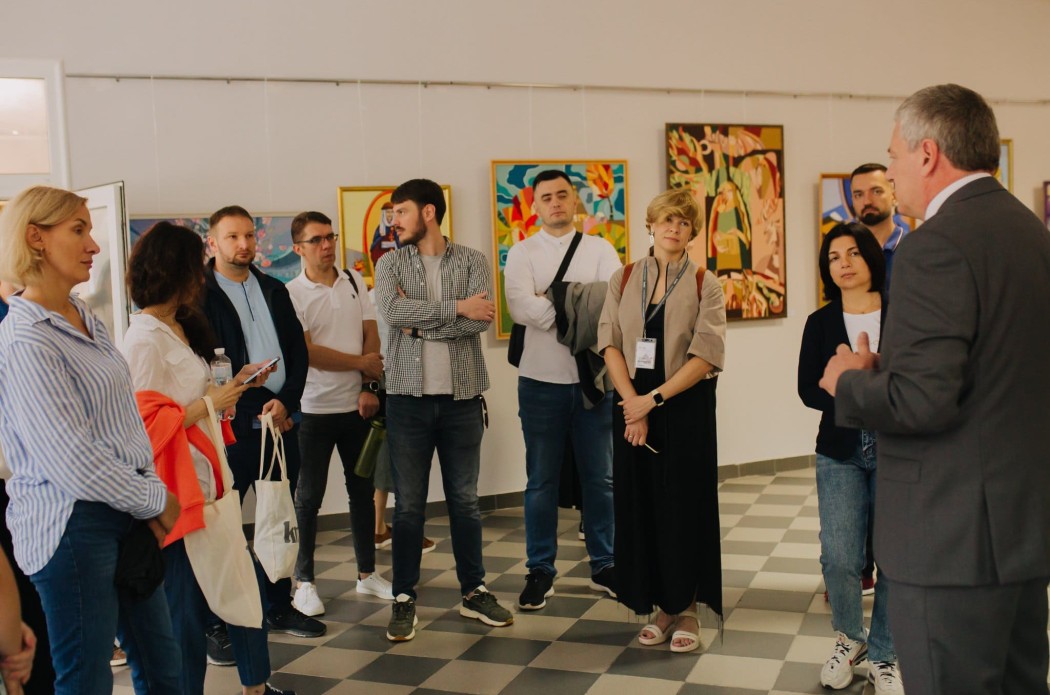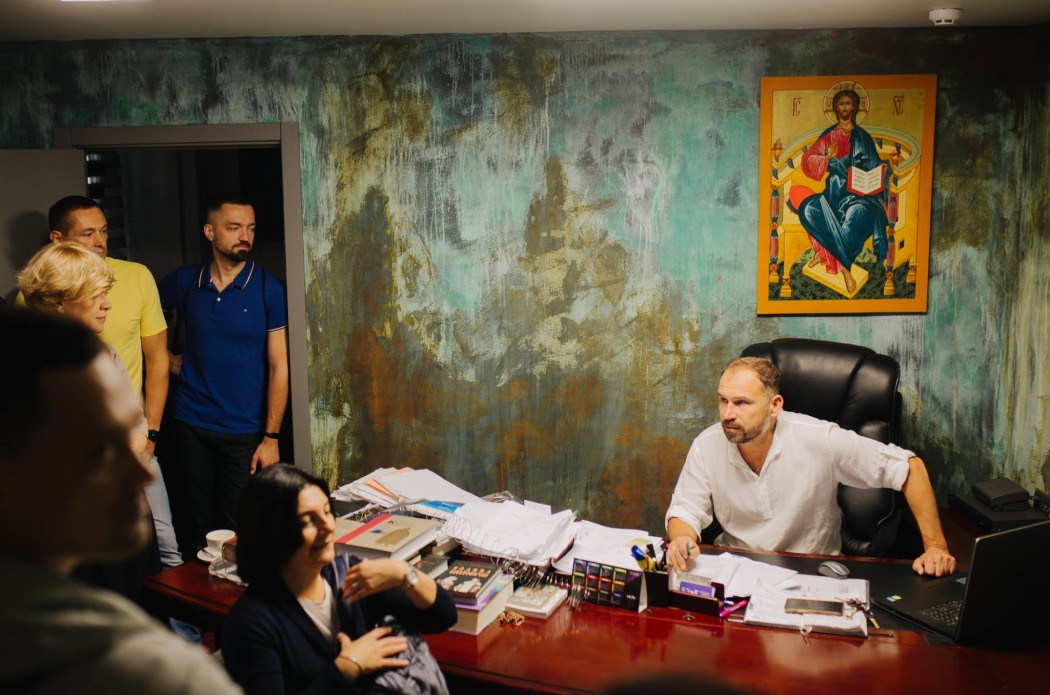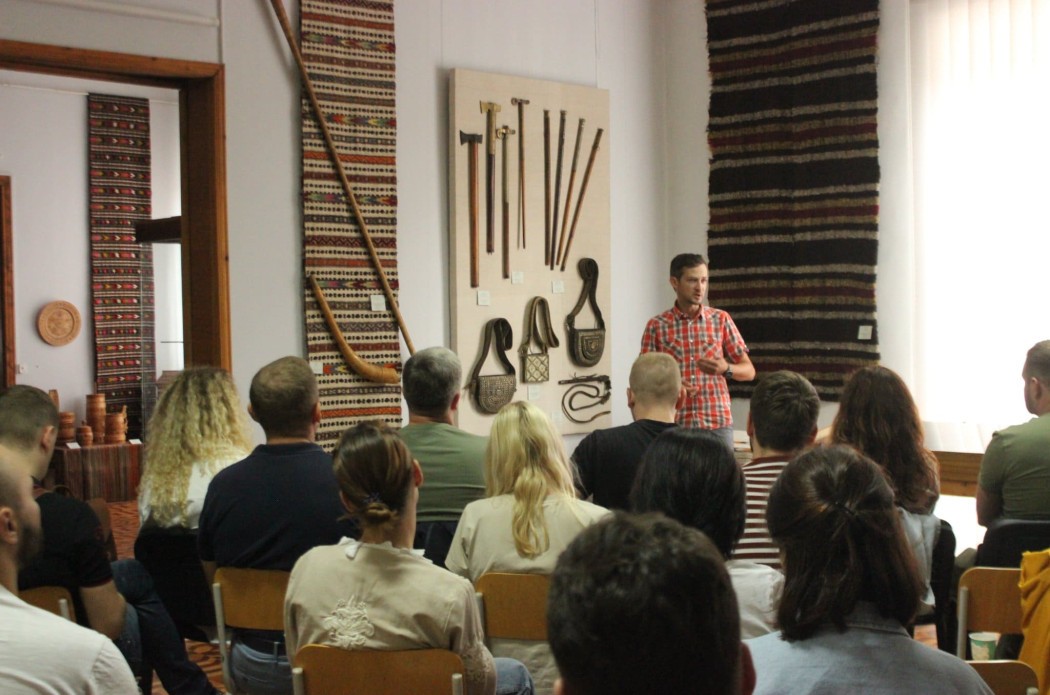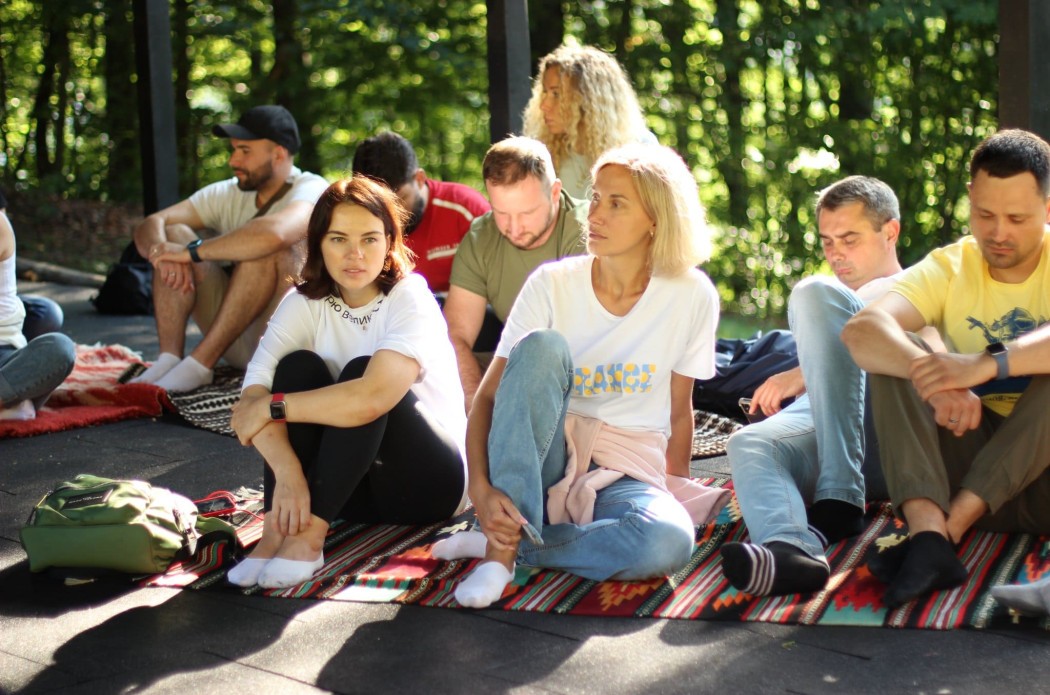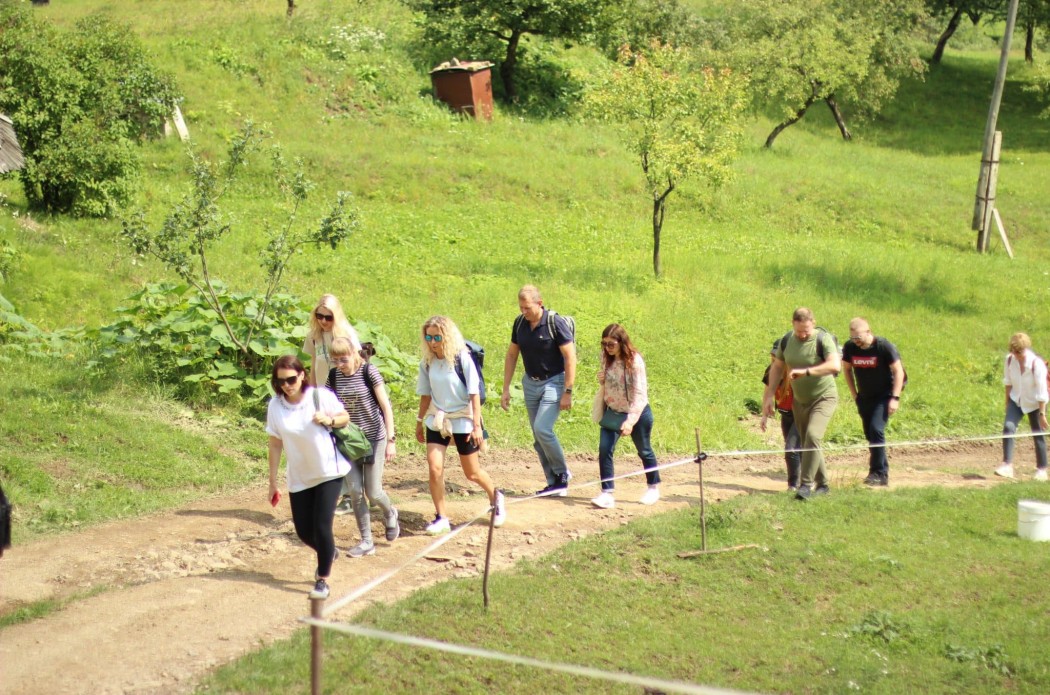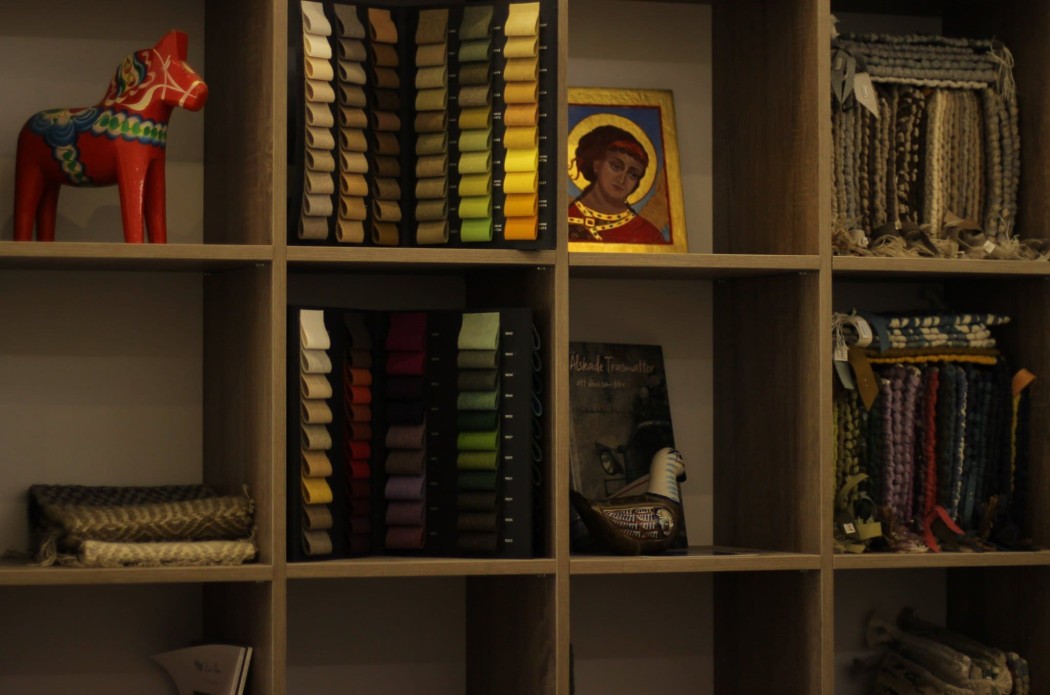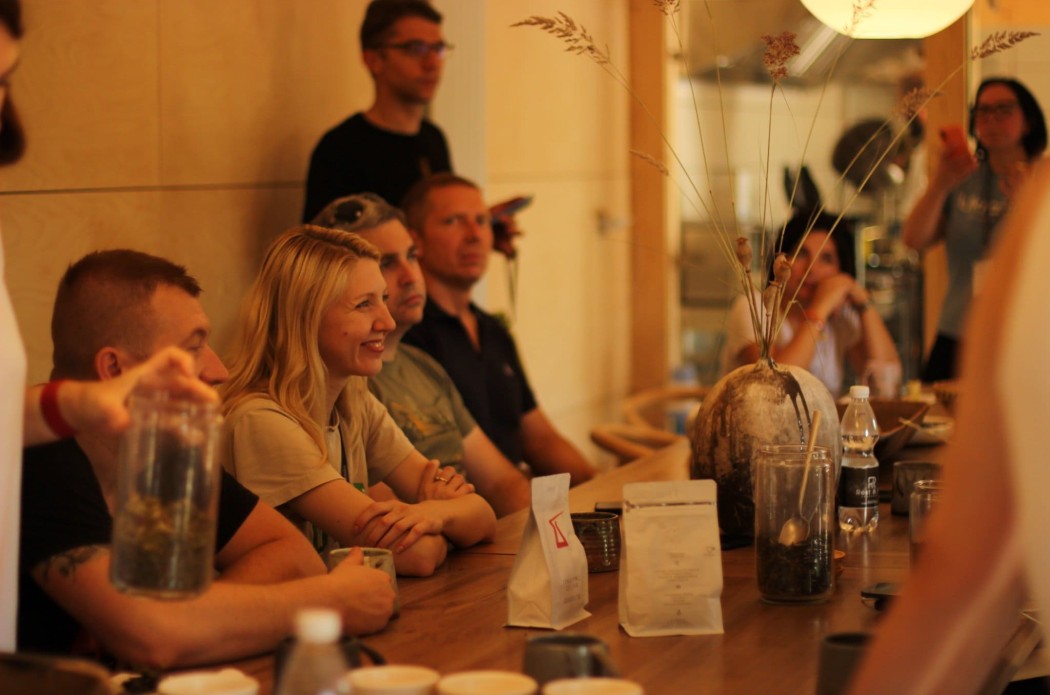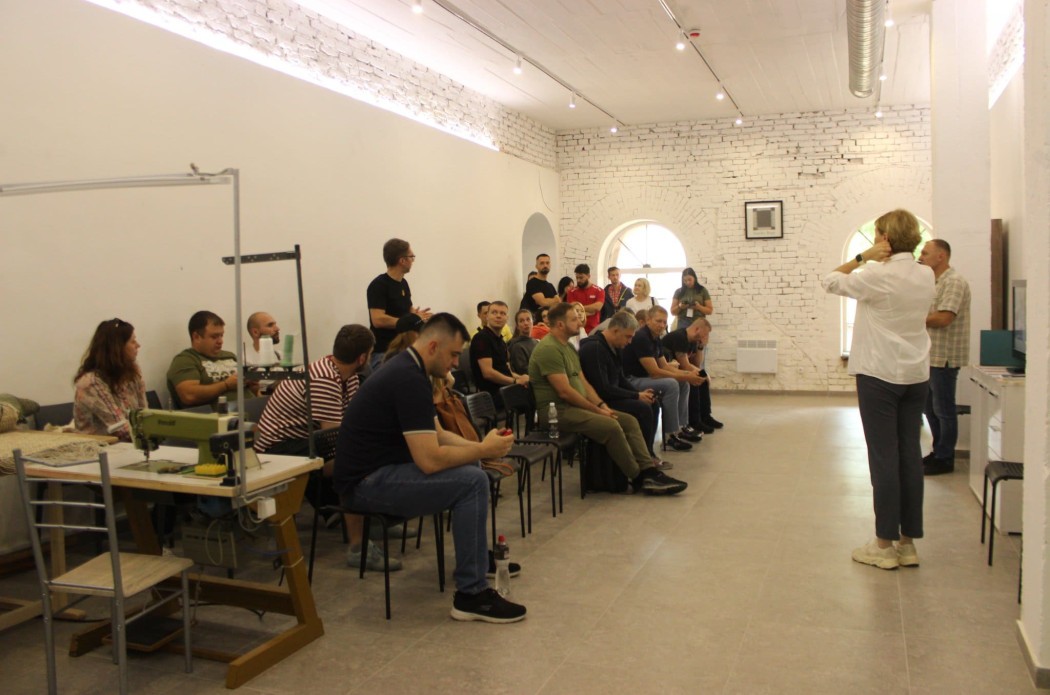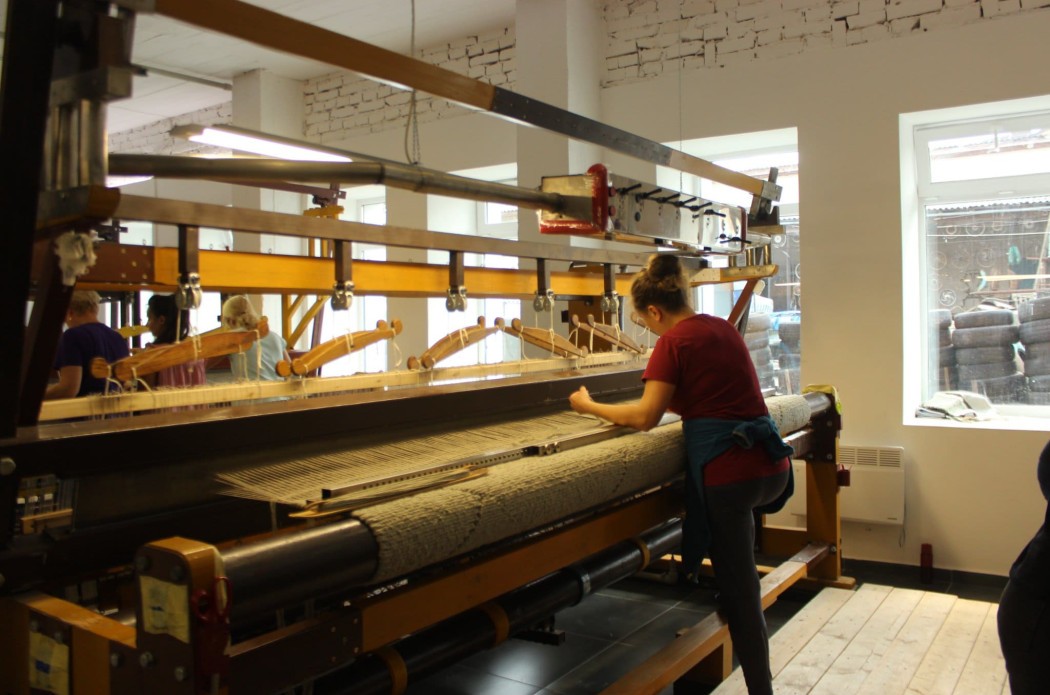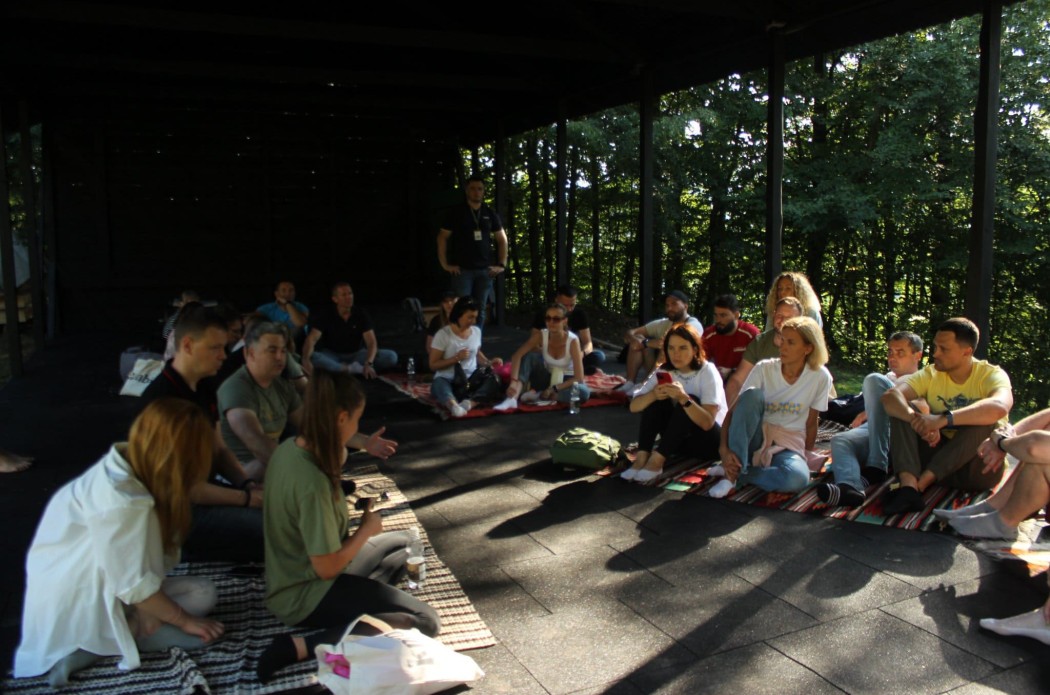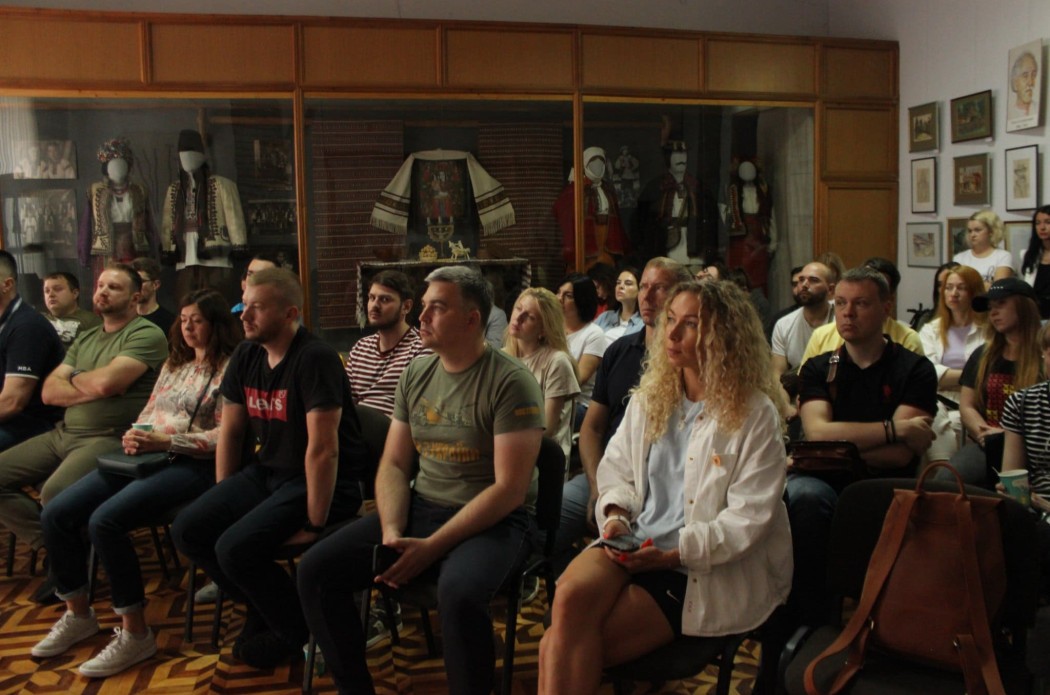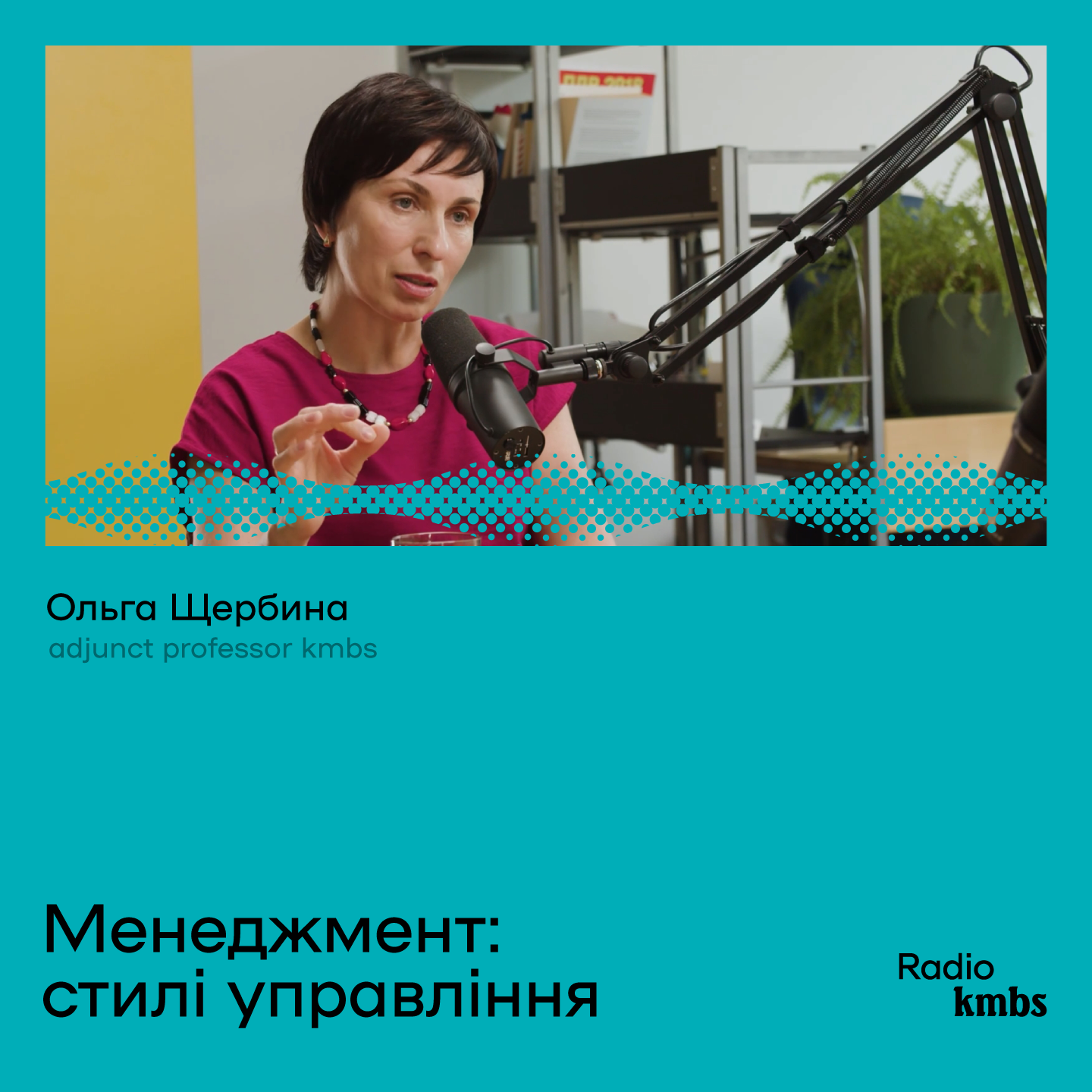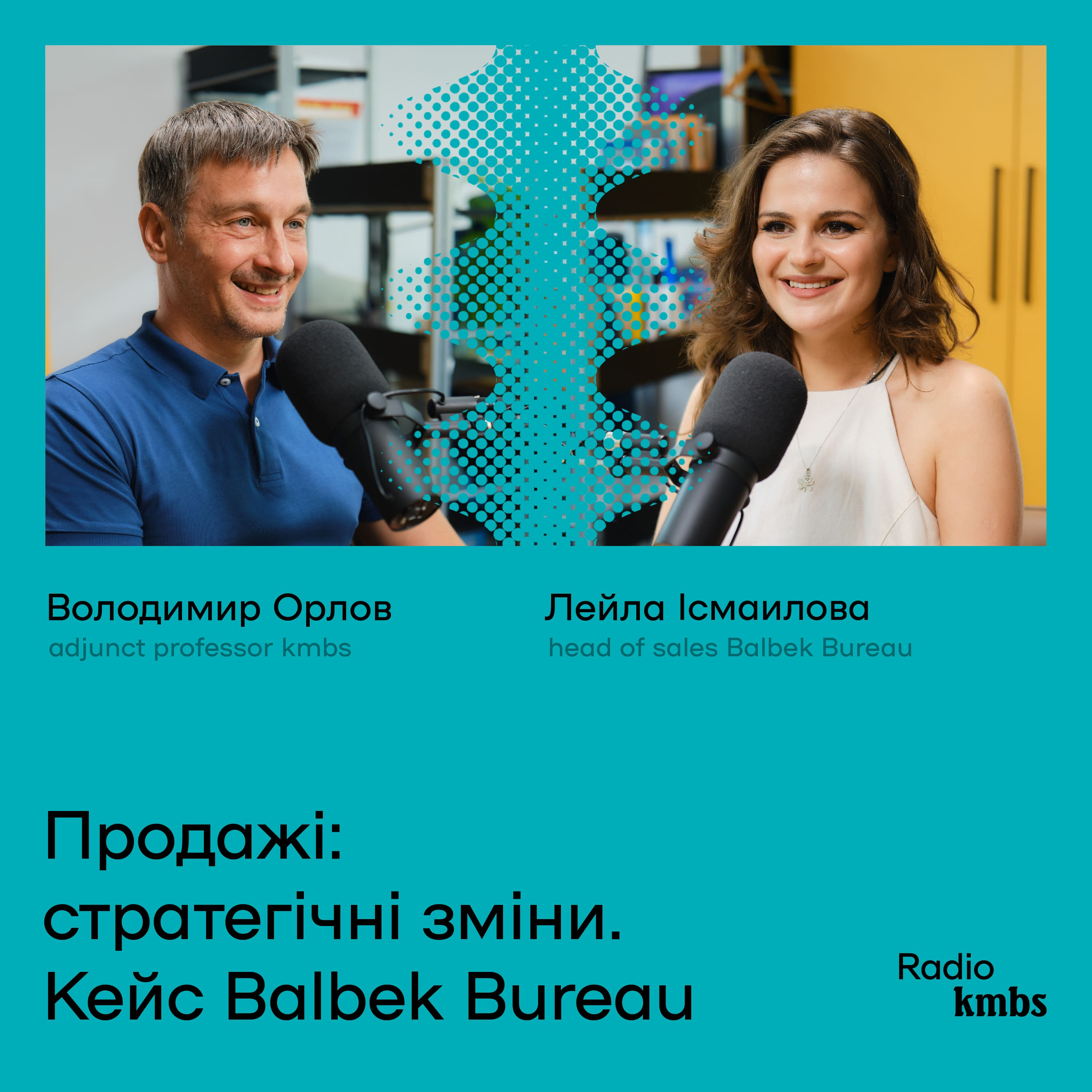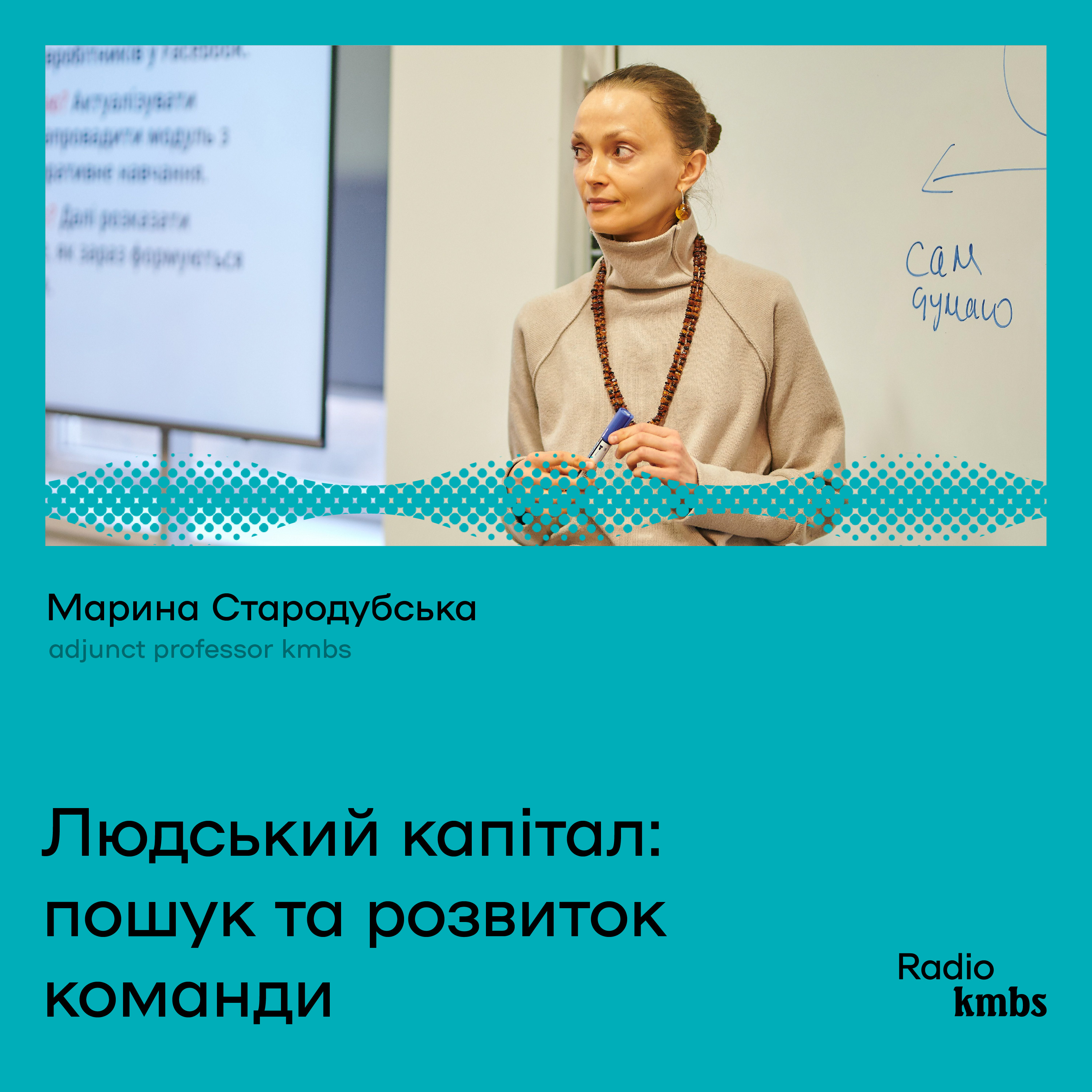The field trip module's main task was to study the nature of managerial capacity for rethinking in a region considered quite traditional, conservative, and unhurried.
Frankivsk, which must be protected
On the first day, the participants met in Ivano-Frankivsk. First, they met with Roman Havrysh, a native of France, as well as the founder and head of the marketing agency Aimbulance and adjunct professor kmbs. He told the participants not only about the new identity of Frankivsk but also about the city's brand as an attribute of the ecosystem approach to business in general.
Open systems
The second day of the kmbs impact visit was dedicated to cases that combine business ideas with social entrepreneurship and allow you to see examples of interaction in open systems with your own eyes.
Urban Space 100 is a social enterprise that directs 80% of net profit to support public projects in the city. During its existence, 135 projects have already been funded. Marta Hladka, the coordinator of the Urban Space program, told the module participants about them. The most recognizable ones are the restoration of doors from the initiative "Frankivsk, which must be protected," which we met yesterday, the annual music festival "Day of Street Music," and the SortSmart recycling station. Walking around the city, you can see other projects supported by Urban Space 100. Frequent winners of the grant competition are art projects: "Revisionist Syndrome," exhibitions at the "Detektor" gallery, the Center for Contemporary Art, the "Alyarm" graffiti festival, and the Short Metro festival.
Urban Space 100 is part of the "23 Restaurants" network, with the development director of which Oksana Kaminska. The participants had a meeting before lunch. They learned how the network manages not only to work under martial law but also to help the "Return Alive" fund and the Save Ukraine Now initiative.
By the way, the Save Ukraine Now initiative is also actively supported by Promprilad.Renovation and innovation center based on an old factory. After the start of the full-scale invasion, the center, together with its partners, initiated the creation of a platform to support companies that were forced to move their business to Ivano-Frankivsk and the region during the war — Save Business Now. It was possible to help more than 50 companies with relocation, some of which were located at Promprilad. The participants could see everything with their own eyes during a short excursion.
The Promprilad plant is one of the oldest instrument-making enterprises in Galicia. Located in the center of Ivano-Frankivsk, during Soviet times, the plant was a platform for innovation. Products for the industry were manufactured here, but the population was also supplied with goods. For example, umbrellas, known throughout the Soviet Union, and parts for passenger cars were made here. The goods were exported to more than 20 countries of the world. In the 1990s, the plant was privatized and sold off.
Now, using the vast territory of the factory, they are creating an innovation center for the city's development in four directions: education, art, new economy, and urban planning. The "Promprilad.Renovation" project is an example of impact investing when investors invest in a social initiative and convert money into a powerful social impact. The plant is gradually being rebuilt into office premises, laboratories, workshops, exhibition and entertainment centers, a hotel and hostel, a farmer's market, and restaurants.
All the projects that the participants got to know during the second day of the module are implemented within the framework of the platform and the "Teple Misto" public organization. Its purpose is to promote effective communication between the community, business, and administration to improve city life.
One of the co-founders of the "Teple Misto" platform is the co-owner of the "23 restaurants" company Yuriy Filiuk. Naturally, after getting acquainted with all these breakthrough projects, the participants of the module were eagerly waiting to meet the person who managed to attract more than 60 businesses to unite in the triangle of "local government-business-community" and unite hundreds of like-minded people around the idea to make the city innovative and more convenient for residents.
Throughout the day, the participants empirically studied the successful functioning of open systems and examples of interdisciplinary leadership, so an exciting discussion took place at the traditional evening reflection with sometimes opposing views on the studied phenomena. But this is the interest of MBA studies!
The day continued with a meeting with the first deputy mayor of the city Victoria Susanina, who spoke about relocating businesses to the town. After February 24, not only families but also companies began to move to the western regions. The Save Business Now center was created to help businesses and research. Scientific communities relocated to the Ivano-Frankivsk region, and local companies adapted their models to new conditions. According to the authorities plan, the center's activity should significantly strengthen the economic processes in Ivano-Frankivsk and the region.
Since 2016, a public movement for the restoration of historical heritage, called "Frankivsk that must be preserved," has started in the city. It was created by public activist Maria Kozakevych and told the module participants about her initiative. It all began with the preservation of the old front door. In a few years, it was possible to assemble a team of carpenters, blacksmiths, stained glass restorers, and activists who spread the idea of heritage restoration. Executive MBA kmbs participants could admire the results of their work while walking through the streets of Frankivsk together in the company of Maria.
Soil quality
The third day of the module was devoted to studying the "soil," the socio-cultural context of the Ivano-Frankivsk region. After all, without understanding the context, it is impossible to know how the system functions.
First, the participants visited the Ivano-Frankivsk National Academic Drama Theater, named after Ivan Franko, accompanied by his manager Rostyslav Derzypilskyi. This theater has always been distinguished by unprecedented creative "explosions," which from time to time reminded the Ukrainian cultural world about the active artistic position of the collective. Even now, the Rostyslav Derzypilskyi theater's creative palette stands out from many other, even the most successful, theater in Ukraine.
With the beginning of the full-scale invasion of Russia, the Frankiv Drama Theater went into the mode of a "creative hideout," creating a humanitarian logistics center, "Movement of Resistance — Movement of Help," on its base and becoming a refuge for artists from various regions, IDPs and soldiers of the Armed Forces of Ukraine.
Ivano-Frankivsk has long been considered a city of students. Currently, 10 universities and their branches work here. The most famous is probably the Prykarpatsky National University, named after Vasyl Stefanyk. Its rector Ihor Tsependa spoke about the history and modernity of the university.
By the way, during the war, the university not only did not stop scientific and pedagogical activities, actively conducted an admissions campaign, and engaged in joint work for the sake of victory. For example, he maximally contributed to the relocation of the Kyiv company "Extrusion in motion": he helped to equip a production workshop and find housing for employees. Before the full-scale war, this enterprise made elements of medical equipment, engineering structures, and sculptures and now manufactures tourniquets and orthoses for soldiers using its technology.
The participants continued to study the region excitingly — in the game "Majestic Pan." Its rules are similar to the well-known "Monopoly," but it was created considering the local flavor: there are historical cards and characters that help you learn more about Ivano-Frankivsk. The process was moderated by Serhii Matusov, the founder of the Velichnyi Pan brand.
Cultural exploration of Ivano-Frankivsk would not be complete without addressing the Stanislavsky phenomenon, with one of whose representatives, Taras Prokhasky, the participants met in the evening. He shared that sometimes it is a pity to feel how the atmosphere, the spirit, and the unique energy pass away in different dimensions — in the city, communities, or institutions. On the other hand, you cannot cling to the past, just as you cannot deny the natural course of things. True, it is worth preserving special symbols and constructs because it is still essential for a person to recognize something familiar even in new stages of life. This is how the term "recognizable innovation" arose in the conversation. That is, novelty, which contains elements of the past, adds warmth to it and helps to accept it.
During the reflection, the participants spoke about the fact that development as a permanent and directed change is possible only with the involvement and proactivity of all parties. For this, you need to change the focus of your internal questions from "what will the government give me?", "what will the university provide me?", "What is the labor market ready to help?", "What did my partners do to me?" etc. — on "what can I create for the city, university, labor market?". This inner readiness, as well as the developed ability to build bridges rather than waiting or demanding something, is our area of development.

